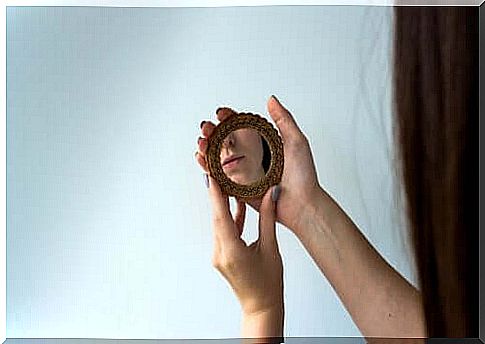How Is Your Relationship With Your Body?

Your relationship with your body is not as clear-cut as you may think. It often stays in the background, despite being important. Often your relationship with your body is instrumental or functional. It is instrumental when you assume that your body is a means of influencing others.
In this case, make sure you’re happy with it or make it more beautiful to attract others. On the other hand, it is also possible for the opposite to happen. You can hide your body from others. You can also neglect it because you don’t have a good self-image.
Your relationship with your body can also be functional. This means that you are only aware of it when you feel pain or get sick. When you’re healthy, you forget that everything you do, feel, and think happens biologically in your body.

Apathy and obsession with the body
Some people have a distant relationship with their bodies. They don’t explore it and don’t know much about it. It is also possible that they feel some disdain or fear for it. For people who have such a difficult relationship with their bodies, there are usually two extremes.
- First, there are people who are overly modest and attentive to their organism.
- Secondly, there are people who are basically indifferent to their own bodies.
Those who become obsessed with their bodies are generally very concerned. They especially insist on the topic of cleanliness and are afraid of bacteria. They also do not tolerate the natural odors of sweat, urine or feces. In fact, they don’t see them as natural scents, but rather as warning signs.
At the other end of the spectrum, there are those who deviate from the norm. A sign of mental problems is the extreme indifference when it comes to hygiene and the body in general.
These people prefer not to wash or change clothes. They prefer to smell and usually don’t worry about it. If your relationship with your body falls into one of these categories, you need help.
Emotions and your relationship with your body
Emotions are neither positive nor negative. However, some of them cause further disturbances in the body. By disruption we mean the activation of processes that change the normal balance in the body.
Those emotions are anger, sadness and fear. And of course there are also emotions that are a combination or distraction from the latter, such as:
- frustration
- stress
- intolerance
All these emotions are a response to stimuli that your body perceives as threatening.
All these emotions are a response to stimuli that your body perceives as threatening. Your emotions affect your relationship with your body. Many studies indicate that it is clear that emotions help restore organic balance in certain cases.
In other cases, they lead to diseases. Science has verified that fear leads to various diseases, especially infections or autoimmune diseases.

Scientists have also proven that fear negatively affects surgical procedures. What we know as stress, in turn, tends to alter the body’s normal repair processes.
Hormone production during periods of stress can increase the chances of developing certain types of diseases, such as cardiovascular disease. They also weaken the immune system.
Many people do not notice the effects of their emotions on their bodies. For example, they don’t notice that their heart rate increases or that their breathing changes when they feel certain emotions. They are also not aware of changes in temperature, tensions in certain muscles or the acceleration of certain processes.
Your relationship with your body depends on how sensitive and aware you are of the changes taking place in your body.









